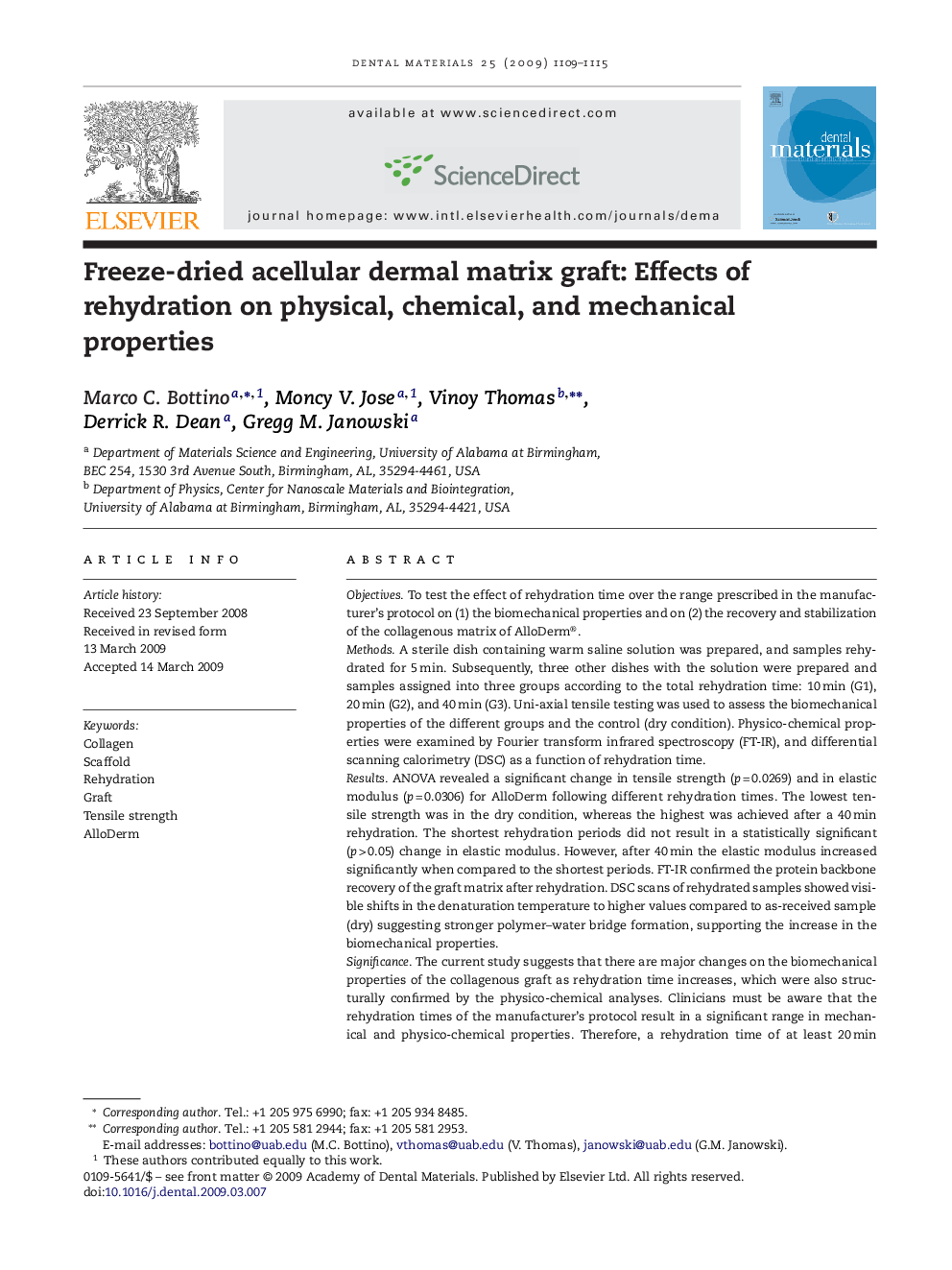| Article ID | Journal | Published Year | Pages | File Type |
|---|---|---|---|---|
| 1422180 | Dental Materials | 2009 | 7 Pages |
ObjectivesTo test the effect of rehydration time over the range prescribed in the manufacturer's protocol on (1) the biomechanical properties and on (2) the recovery and stabilization of the collagenous matrix of AlloDerm®.MethodsA sterile dish containing warm saline solution was prepared, and samples rehydrated for 5 min. Subsequently, three other dishes with the solution were prepared and samples assigned into three groups according to the total rehydration time: 10 min (G1), 20 min (G2), and 40 min (G3). Uni-axial tensile testing was used to assess the biomechanical properties of the different groups and the control (dry condition). Physico-chemical properties were examined by Fourier transform infrared spectroscopy (FT-IR), and differential scanning calorimetry (DSC) as a function of rehydration time.ResultsANOVA revealed a significant change in tensile strength (p = 0.0269) and in elastic modulus (p = 0.0306) for AlloDerm following different rehydration times. The lowest tensile strength was in the dry condition, whereas the highest was achieved after a 40 min rehydration. The shortest rehydration periods did not result in a statistically significant (p > 0.05) change in elastic modulus. However, after 40 min the elastic modulus increased significantly when compared to the shortest periods. FT-IR confirmed the protein backbone recovery of the graft matrix after rehydration. DSC scans of rehydrated samples showed visible shifts in the denaturation temperature to higher values compared to as-received sample (dry) suggesting stronger polymer–water bridge formation, supporting the increase in the biomechanical properties.SignificanceThe current study suggests that there are major changes on the biomechanical properties of the collagenous graft as rehydration time increases, which were also structurally confirmed by the physico-chemical analyses. Clinicians must be aware that the rehydration times of the manufacturer's protocol result in a significant range in mechanical and physico-chemical properties. Therefore, a rehydration time of at least 20 min guarantees not only better handling and mechanical properties but, most importantly, supplies a material that closely resembles the natural tissue.
